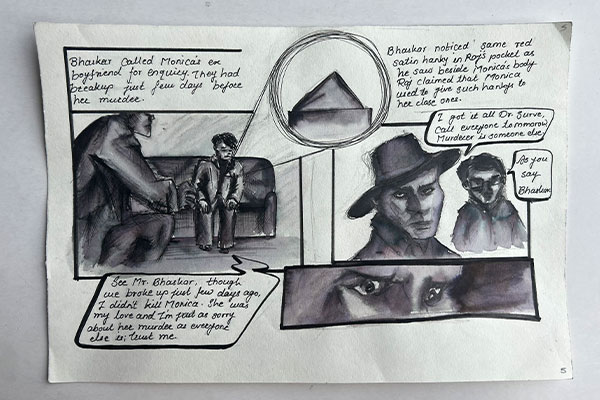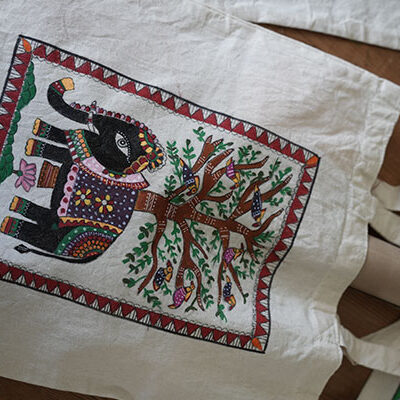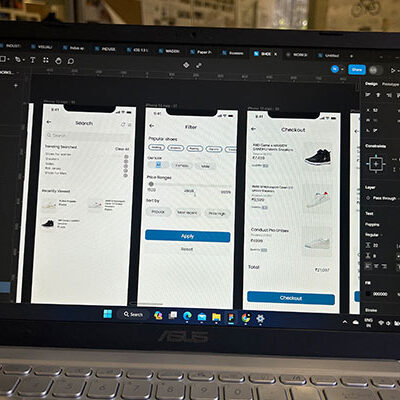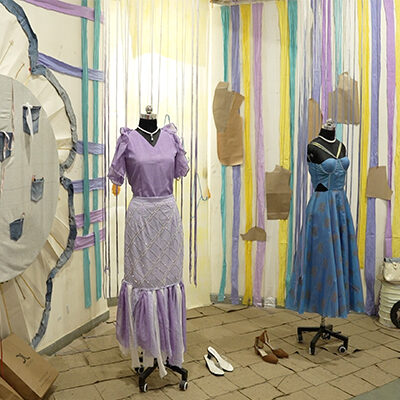M.Des in Film Making
Embark on an immersive journey into the captivating world of cinematic storytelling with our Master of Design in Film Making program (M.Design in Film Making) at Indus School of Design. Renowned for its commitment to creativity and innovation, our Masters in Film Making Program offers a dynamic curriculum blending theory and practice, encompassing all aspects of the filmmaking process. Led by industry experts, students delve into screenwriting, directing, cinematography, editing, and production design, honing their skills in crafting compelling narratives and bringing them to life on screen. From concept development to post-production, students engage in hands-on projects, collaborative workshops, and real-world film productions, preparing them for diverse roles in the ever-evolving landscape of film and media. Join us and unlock your creative potential, shaping the future of storytelling as a visionary Film Maker with our M.Des in Film Making Courses, where imagination meets innovation to redefine the boundaries of cinematic excellence.
What you must learn to become a Film Maker?

To become a Proficient Film Maker, you must acquire a diverse set of skills and knowledge across various aspects of the Film Making Process. Firstly, understanding storytelling fundamentals, including narrative structure, character development, and thematic elements, is crucial for crafting engaging and meaningful stories. Proficiency in screenwriting allows you to translate ideas into compelling scripts that serve as the blueprint for your film. Mastery of directing techniques, including shot composition, blocking, and working with actors, enables you to bring your vision to life on screen. Additionally, knowledge of cinematography, lighting, and sound design is essential for capturing and enhancing the visual and auditory elements of your film. Understanding film editing principles and techniques allows you to shape the narrative and pacing of your film during the post-production process. Collaboration and communication skills are also vital for working effectively with cast and crew members, fostering a collaborative and creative filmmaking environment. Furthermore, staying updated on industry trends, emerging technologies, and film distribution platforms ensures relevance and adaptability in the dynamic field of filmmaking.
Key Learning Areas
1. Storytelling Fundamentals: Explore narrative structure, character development, and thematic elements to craft engaging and impactful stories for film.
2. Screenwriting: Develop proficiency in writing screenplays, mastering formatting, dialogue, and storytelling techniques specific to the film medium.
3. Directing Techniques: Learn the art of directing actors, blocking scenes, and creating visual storytelling through shot composition and camera movement.
4. Cinematography: Understand the principles of cinematography, including lighting, framing, and camera techniques, to effectively capture mood and emotion on screen.
5. Film Editing: Master the art of film editing, learning how to assemble footage, create rhythm and pacing, and enhance storytelling through editing techniques.
6. Sound Design: Explore the role of sound in film, including sound recording, editing, and mixing, to create immersive and evocative auditory experiences.
7. Production Design: Learn about production design principles, including set design, props, costumes, and location scouting, to visually enhance and support storytelling in film.
8. Film Analysis and Critique: Develop analytical skills through the study and critique of films from various genres and styles, gaining insights into cinematic techniques and storytelling approaches.
9. Film Marketing and Distribution: Understand the business aspects of filmmaking, including film marketing strategies, distribution channels, and festival submissions, to reach audiences and navigate the industry.
10. Professional Practice and Collaboration: Gain practical experience through hands-on filmmaking projects, collaborating with peers and industry professionals to develop and produce films, preparing you for real-world filmmaking challenges.
Career Paths
- Film Director
- Screenwriter
- Cinematographer
- Film Editor
- Producer
- Production Designer
- Sound Designer/Editor
- Film Critic/Reviewer
- Film Marketing and Distribution
- Film Festival Programmer/Curator
- Independent Filmmaker
- Television/Film Production Assistant







